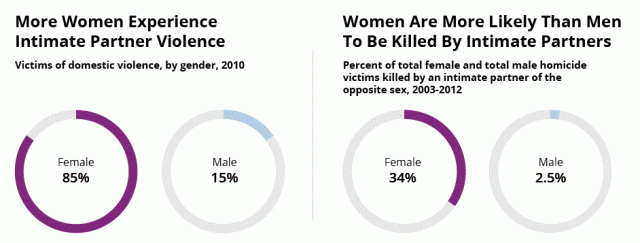 We have been hearing many stories in the news of late, lauding women who stand up to unjust systems and dismissive men. However, these stories do not always have happy endings, but tragic and terrifying ones. A Christian educator based in Philadelphia, Jessica Davis shares some of her own story, as well as the stories of countless women who pay a terrible price for resisting, and how important it is for those of us in community to stand up for and protect these brave women in any way we can. Read, comment, and share.
We have been hearing many stories in the news of late, lauding women who stand up to unjust systems and dismissive men. However, these stories do not always have happy endings, but tragic and terrifying ones. A Christian educator based in Philadelphia, Jessica Davis shares some of her own story, as well as the stories of countless women who pay a terrible price for resisting, and how important it is for those of us in community to stand up for and protect these brave women in any way we can. Read, comment, and share.
Rev. Dr. Linda E. Thomas – Professor of Theology and Anthropology, Chair of LSTC’s Diversity Committee, Editor –“We Talk. We Listen.”
“She was warned. She was given an explanation. Nevertheless, she persisted.” – Senate Majority Leader Mitch McConnell, 2/7/2017
“If she was listening to me, I wouldn’t have used it.” – New York resident Ming Guang Huang, shortly after attacking his long-abused wife with a meat cleaver, 2/24/2013
Mitch McConnell’s remarks defending his efforts to silence senator Elizabeth Warren during a speech criticizing attorney general nominee Jeff Sessions earlier this year have become a rallying cry to women all over the United States. A quick internet search reveals that, if you wish, you can purchase that well-known refrain on everything from t-shirts to diaper bags to beer koozies.

In the weeks following the debacle on the senate floor, the twitterverse exploded, the t-shirt printers got busy, and thousands of women went so far as to obtain “Nevertheless, she persisted” tattoos. What began as a debate about a cabinet appointee morphed quickly into an extravaganza of feminine affirmation and empowerment.

So, why did that phrase leave me cold, when so many other women were literally and figuratively wearing it as a badge of honor?
As I sat with my reaction, I realized that the phrase didn’t just leave me cold, it left me frozen, with a very familiar sensation of ice in my chest. The iciness began to spread through my body, and more familiar sensations arose-the hair on the back of my neck stood up, goosebumps erupted on my arms, my heart began to pound. What first felt like apathy with regard to this phrase morphed quickly into fear, and then, into abject terror.
And suddenly, in that moment, I remembered where I had felt these sensations before.
McConnell’s words had called up the flesh memory of years spent in a physically abusive relationship. The terror flooding my mind and senses was none other than what I experienced night after night upon hearing my abuser pull up in the driveway, his key in the lock, his footsteps in the hall. Each time wondering “Is tonight the night he finally kills me?”
If you are reading this, you almost certainly know about intimate partner abuse. You have seen the news reports, you have watched the Lifetime movies, you have stood around the water cooler and heard people ponder “Why doesn’t she just leave?” If you are employed in any of the helping professions, you are likely so familiar with the statistics about intimate partner abuse of women and femme people that it has almost become a litany – 1 in 3 women abused…20 women per minute…1 in 7 stalked…4,000 murdered each year…how sad…those poor, poor women…wish she would’ve reached out…and on and on and on, In saecula saeculorum.

Even if you have never experienced domestic abuse yourself, even if you’ve never seen it in person and know it only from the television and movie screen, you know how the age-old dialogue goes-a victim apologizing, begging for forgiveness for some tiny infraction, followed by the explosive violence, then an explanation for why the abuse was the victim’s fault. ‘if only you hadn’t…you gave me no other option…you just don’t listen.” We know this old, tired trope. And when that abuser finally murders that victim, we know what we will hear-”She was warned. She was given an explanation. Nevertheless, she persisted.”
We Know This Refrain.
And in millions of homes all over the country, this refrain is taken straight from the pages of a Christian hymnal. This is perhaps the most tragic thing about domestic abuse that is perpetrated against women and femme people in the Western world – it is supported, and sometimes, even lauded by, the church. The bible is teeming with stories about violence against women, often committed by their intimate partners. Though their stories are rarely heard in our lectionary cycle, their rhythms are in our DNA, and that old litany rings in our ears as we approach the altar and are sent out into the world, and if we are not taught how to interpret these stories from within our religious context, we are putting real women’s lives in peril (please note that this is in no way diminishes the importance of addressing intimate partner abuse committed against men and non-binary persons, but to focus here on the ways in which the church specifically promotes violence towards women and femme people).
Even if we’ve never read them, somehow we already know the stories of Dinah, Tamar, the wives of Ephesus – the cycle of abuse is so familiar. In fact, the story of the Levite’s concubine in Judges 19 lays it all out in great and gory detail…she runs away from him to her father’s house, he follows her in order to “to speak tenderly to her and bring her back.” She agrees to go back with him, but before they get home, there is a complication. In echoes of Sodom, the wicked men of the town demand that the homeowner with whom they are staying send the Levite out to have sex with them. He refuses to do so, and instead, gives them his own virgin daughter and the Levite man’s concubine to “use them and do whatever you wish to them” (19:24).
“So the man took his concubine and sent her outside to them, and they raped her throughout the night, and at dawn they let her go. At daybreak the woman went back to the house where her master was staying, fell down at the door and lay there until daylight. When her master got up in the morning and opened the door of the house and stepped out to continue on his way, there lay his concubine, fallen in the doorway of the house, with her hands on the threshold. He said to her, ‘Get up; let’s go.’ But there was no answer. Then the man put her on his donkey and set out for home.
When he reached home, he took a knife and cut up his concubine, limb by limb, into twelve parts and sent them into all the areas of Israel” (19:25–29).

This story is so heart-rendlingly sad because it is so damn familiar. It is the story of so many women in scripture, of countless women throughout the ages whose stories will never be told, it is the story of Jinyia You, who, after leaving her husband because she could no longer stand the abuse, and reporting his continued harassment to the authorities, was hacked 17 times in the head with a meat cleaver, in broad daylight, in 21st century America.
So. As we who are leaders in the church encounter this oh-so familiar story-in scripture, on the news, in the lives of our congregants, how are we called to respond?
Let me state this as plainly as I can-In this nation where 33% of the cisgender women and 50% of the transgender women sitting in our pews will have experienced intimate partner violence; where thousands of women will die at the hands of their partners even after seeking out protection from law enforcement; where the leading cause of death for African American women between the ages of 15 and 45 is domestic violence, Social Statements Are Not Enough. What we say we believe about violence against women means nothing if it is buried deep on a denominational website.
We must acknowledge, today, the ways in which we are perpetuating the abuse. If you are a leader in a congregation of more than 10 members and you don’t know anyone there who has experienced intimate partner violence, then the simple truth is that your congregation is not a place where people feel safe enough to say that it’s happening. In what ways are you suppressing their voices, demanding, like McConnell, that they sit down and shut up for your comfort?
Social Statements Are Not Enough. If we are to be bearers of the gospel in this world,we must persist alongside these women. We must let them know that if they trust us enough to share their stories, they will not be silenced. We must let them know that because we proclaim the love of a proundly incarnational G-d, we will never send them away with spiritual platitudes, but will instead provide physical harbor and safety. We must embody, individually and communally, from the pulpit, the classroom, and the parish hall, the G-d who rescues us from our distress, who sends out a word and heals us, who rescues us from the grave (Ps. 107). We must do it today and tomorrow and next month and next year, over and over and over, until that becomes the new familiar refrain. We must persist, like our risen lord, even unto the end of the age.

 Jessica Davis is a Christian Educator and Chaplain for #decolonizeLutheranism. She lives in the Philadelphia area, and received her MA in religion from the Lutheran Seminary at Philadelphia. Her primary areas of focus are the theology of trauma and developmental incarnation across the life span. You can follow Jessica at https://medium.com/@jessicadavis_96034
Jessica Davis is a Christian Educator and Chaplain for #decolonizeLutheranism. She lives in the Philadelphia area, and received her MA in religion from the Lutheran Seminary at Philadelphia. Her primary areas of focus are the theology of trauma and developmental incarnation across the life span. You can follow Jessica at https://medium.com/@jessicadavis_96034

You wrote so well the words I want the church to hear. Thank you. I will be sharing this widely.
LikeLike
Thank you, friend.
LikeLike
I you so rightly share the need for us to give voice to these stories in our congregations; to give names, faces and voices to the statistics we read about and call out the terror that underlies many of our theologies.
LikeLike
The narrative from Judges 19 is one of those horror stories tucked away in the Hebrew Bible that I always find difficult to read and teach. This past semester while teaching it to my Intro to the Bible class, I was closing out my lecture on Judges and the story of the raped and murdered concubine literally took the air out of the room. Up to that point, it was a regular boring lecture, but something about chapter 19 changed the very atmosphere. I have no doubt, considering how many women there are in the class, that the response was due to its relevance to intimate spousal abuse and the reality the women in the class face everyday. Wonderful article, thank you.
LikeLike
No person deserves to beaten under any circumstance or disrespected. In the African American community especially among the clergy I believe that we should be purposeful of breaking the code of silence when we know of domestic violence among ourselves. And when I say among ourselves I don’t mean just in the pews I also mean in the pulpit. I personally have known of men who are clergy and have beaten their wives. And because we want to stay in favor of the older clergy and move up in the church we choose to remain mute on a delicate subject. If we really promote justice in a racial sense we must promote justice on a domestic sense.
LikeLike
I am encouraged by these words. It is sad to know that the tongue which speaks for the cause backbites against it. Embodied knowing is very essential in the context as you said. Persistence until the fulfillment.
LikeLike
Thank you for your words. As a future pastor in the church, this reminder that denominational statements mean nothing if the work of the people does not embody what the statement says. I appreciate your bold and Gospel centered call for clergy to believe and persist alongside their members. As Smitha says above, I commit to persist until the fulfillment.
LikeLike